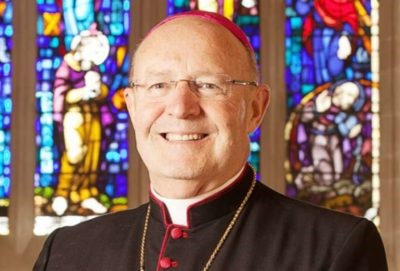– Tej Francis
tejfrancis@gmail.com
Ranchi, India
Catholic leaders appeal for help after Jesuit school in India attacked
(CNA) Catholics in the Archdiocese of Ranchi have appealed for help after a local Jesuit mission was brutally attacked by a large armed mob last week. St. John Berchmans Inter College, a Jesuit school and hostel in India’s Jharkhand state, was attacked by around 500 armed Hindu extremists Sept. 3, the college’s secretary Fr. Thomas Kuzhively reported to Agenzia Fides.
The attackers were armed with sticks, chains, iron bars, knives, and pistols, and beat tribal students including two who were seriously injured, he said. They seriously damaged the school’s facilities. The mob also tried to sexually harass female students, tried to prevent the transport of injured students to a hospital, destroyed and vandalized school property, stole cash, and attacked an attached hostel for tribal students, Kuzhively reported. In the wake of the attack, school has appealed to the heads of Jharkhand, as well as other local and regional authorities, for action to be taken.
Christians in India have suffered an increase in attacks since the Hindu nationalist Bharatiya Janata Party rose to power in the country’s 2014 elections. In recent years, religious minorities have been targeted by Hindu extremists for violence and oppression in efforts to keep them out of power and influence and to keep the poorer classes in the country in poverty. After the BJP’s massive victory in 2017 elections, violent attacks against Christians increased in number; the country’s prime minister was recently re-elected in May of 2019 and the BJP kept power, which sparked serious concerns for Christians in the country.
India is listed as a “Tier 2” country by the U.S. Commission on International Religious Freedom (USCIRF) in its latest annual report. Tier 2 countries are not the worst offenders of religious freedom in the world, according to USCIRF, but have serious violations of religious freedom that meet at least one of three conditions: “systematic, ongoing, and egregious.” The Indian government has allowed for these acts of harassment, intimidation, and violence against religious minorities to continue, USCIRF says.
Hobart, Australia
Priests ‘cannot comply’ with laws that break seal of confession, Tasmania’s archbishop says
(CNA) The leader of Tasmania’s Catholic Church said priests in his archdiocese will not comply with a law that would require them to break the seal of confession to report suspected child abuse. The law, passed earlier this week, makes religious ministers’ mandatory reporters of child sexual abuse, and requires Tasmanians with knowledge of abuse to report the crime to police, or face prison time.
Porteous said that priests are “unable” to violate the seal of confession under any circumstances, according to Australia’s ABC News. “I believe the Tasmanian bill will not strengthen protection for children and vulnerable people, but it will have the opposite effect — as offenders will be less likely to come forward to confess serious sins for fear of being reported,” the archbishop added.
“This will deny priests the opportunity to encourage offenders to report themselves to police.” In July, while the legislation was still under consideration, Porteous wrote that “the pope made it clear there can be no exceptions to the inviolability of the seal of confession.”
“Priests and all who work for the Church understand their obligations before the law to report on matters of child sexual abuse. Priests, however, cannot comply with law that would require them to violate their commitment to the Church’s consistent teaching on the inviolability of the sacramental seal. As Archbishop it is my duty to uphold Catholic teaching on this matter.”
“Governments can give all sorts of justifications for wanting to know what has been confessed to a priest, from the most noble (the protection of innocent human life) to the most base (the maintenance of political power),” the archbishop added.
“The Catholic Church fully supports the role of police and the courts in bringing perpetrators of abuse to justice.”



 Follow
Follow


